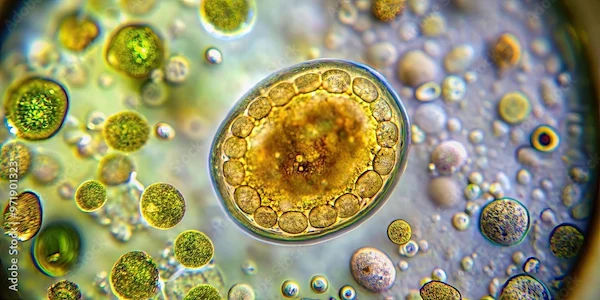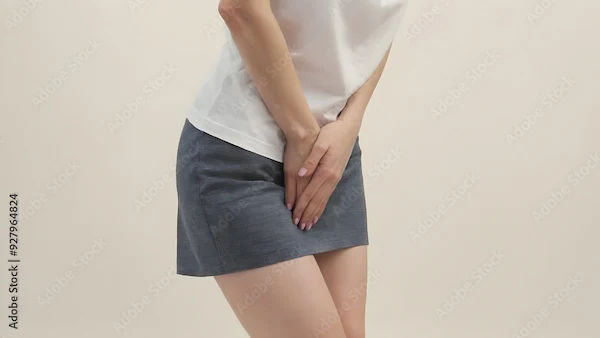Managing and Preventing Urinary Tract Infections: A Comprehensive Guide
Learn effective strategies to prevent and manage urinary tract infections. Explore treatment options, lifestyle changes, and essential tips for different age groups and conditions.

Written by
Last updated on 3rd Jul, 2025
Urinary tract infection is one of the most common infections in the world, infecting millions of various age groups every year. It happens when bacteria infect the urinary tract, typically the bladder and urethra, causing excruciating pain and discomfort. If left untreated for long periods, this infection can become an issue for the kidneys and develop other complications.
Women are more prone than their male equivalents to contract an Urinary Tract Infection (UTI) due to their anatomy. However, early treatment and diagnosis can reduce this risk considerably. This article discusses the causes of urine infections, symptoms, diagnosis, treatment options and more.
Causes of Urine Infections
Bacteria from the digestive system can enter and multiply in the urinary tract. These microorganisms are the primary cause of urinary tract infections.
Here are a few common bacterial pathogens that cause UTIs:
Escherichia coli (E. coli): It causes 80-90% of UTIs. This kind of bacteria normally lives in the intestines and enters the urinary tract through the urethra.
Staphylococcus saprophyticus: More common in young women and is frequently associated with sexual activities.
Klebsiella pneumoniae: It affects people with weakened immunity.
Some other bacterial pathogens that cause UTIs are:
Proteus mirabilis
Enterococcus faecalis
Pseudomonas aeruginosa
Additionally, several anatomical, behavioural, and health conditions increase UTI risk. They are:
Female anatomy (shorter urethra)
Enlarged prostate in men
Structural abnormalities in the urinary tract
A few health conditions can also increase the chances of this disease:
Diabetes
Pregnancy
Weakened immune system
History of kidney stones
These are some behavioural factors responsible for UTIs such as:
Poor hygiene practices
Infrequent urination
Sexual activity
Use of certain contraceptives
Symptoms of Urinary Tract Infections
A urinary tract infection produces several noticeable symptoms, which can vary in intensity and usually develop rapidly over a few days. They include:
Burning or stinging sensation during urination
Frequent urge to urinate, often with little output
Cloudy, dark, or strong-smelling urine
Lower abdominal pain or pressure
Back pain near the kidneys
Blood in the urine (may appear pink, red, or cola-coloured)
Feeling tired or shaky
Low-grade fever
Untreated urinary tract infections can lead to serious health problems. The infection can spread from the bladder to the kidneys, and such situations require immediate medical attention. Potential complications include:
Kidney infection (pyelonephritis)
Permanent kidney damage
Sepsis (blood infection)
Pregnancy complications
Increased risk of premature delivery
Recurrent infections
Antibiotic resistance
Formation of kidney stones
High blood pressure due to kidney damage
Diagnosis of Urinary Tract Infections
Healthcare providers use a combination of tests, physical examinations, and symptom assessments to diagnose UTIs. Early diagnosis prevents complications and guides proper treatment selection.
Urine tests provide crucial information about infection presence and severity. Standard laboratory tests include:
Urinalysis - Checks for bacteria, white blood cells, and red blood cells
Urine culture - Identifies specific bacteria causing infection
Antimicrobial Susceptibility Testing - Determines which antibiotics a specific fungus or bacteria is susceptible to.
pH Level Testing - Measures urine acidity
Protein and Glucose Screening - Checks for other conditions
Medical professionals perform a few other targeted examinations to rule out other conditions whose symptoms are similar to UTIs. Such key examinations include:
Medical history review
Abdominal examination for tenderness
Lower back examination for kidney involvement
Temperature and blood pressure checks
Pelvic exam in women (when needed)
Prostate exam in men (when necessary)
Treatment Options for Urine Infections
Bacterial eradication and symptom control are the treatment focus for UTIs. However, this could vary based on the severity of the infections and patient factors. In this regard:
Antibiotics remain the primary medication for UTIs.
Based on the infection severity and patient’s history, specific antibiotics and pain relief medications are prescribed by physicians for individual needs.
Common treatments include:
First-line antibiotics:
Nitrofurantoin
Trimethoprim-sulfamethoxazole
Fosfomycin
Pain relief medications:
Phenazopyridine for urinary pain
Over-the-counter pain relievers
Duration varies from 3-7 days for simple infections
Several home-based treatments and supplements support recovery and complement medical treatment. Recommended supportive measures include:
Hydration practices:
Drinking 8-10 glasses of water daily
Avoiding caffeine and alcohol
Comfort measures:
Using heating pads
Wearing loose clothing
Taking warm baths
Dietary support:
Consuming vitamin C-rich foods
Taking probiotic supplements
Drinking unsweetened cranberry juice
Prevention Strategies for Urine Infections
UTI prevention depends on lifestyle modification and dietary changes. Regular habits and good hygiene should be practised to reduce infection risk. Prompt treatment combined with preventive methods can lead to better urinary tract health in an individual.
Essential lifestyle changes include:
Wiping from front to back after toilet use
Urinating before and after sexual activity
Taking showers instead of baths
Wearing cotton underwear
Changing out of wet swimwear promptly
Avoiding feminine hygiene sprays
Regular bathroom breaks
Proper genital area cleaning
Dietary changes are significant in reducing the risk of UTIs. Proper nutrition gives a further boost to the health of the urinary tract and fights infection. Suggested diet changes include:
8-10 glasses of water every day
More foods containing vitamin C
Consuming probiotic-rich foods
Adding unsweetened cranberry juice
Limiting caffeine and alcohol
Reducing sugar intake
Including fermented foods
Adding zinc-rich foods
Urine Infections: Special Considerations for Different Age Groups
Age-specific approaches ensure effective UTI prevention and treatment, as different age groups show varied symptoms and require unique management strategies. Children need special attention for UTI prevention and treatment. Key considerations for children include:
Teaching proper wiping techniques
Regular bathroom schedules
Immediate diaper changes
Proper cleaning during baths
Adequate water intake
Immediate attention to symptoms
Elderly individuals face unique challenges with UTIs as well. Important elderly care aspects are:
Regular bathroom schedules
Proper hygiene assistance
Adequate hydration monitoring
Regular medical check-ups
Proper catheter care
Monitoring mental status changes
Temperature monitoring
Mobility assistance for bathroom use
Addressing Urinary Tract Infections in Specific Populations
The risk factors and treatment limitations of UTIs are unique to each group of patients and will need to be taken care of by all healthcare providers. Regular screening is vital among pregnant women because hormonal and physical changes place them at higher risk for UTIs.
Important considerations:
More frequent UTI screening
Limited antibiotic options due to pregnancy
Higher risk of kidney infections
Need for prompt treatment
Regular prenatal check-ups
Increased fluid intake requirements
Apart from these:
Diabetic patients experience more frequent and severe UTIs as high blood sugar levels create favourable conditions for bacterial growth.
Blood sugar monitoring and regular urinary screening are necessary for such patients as they have a higher antibiotic resistance risk.
Consult Top Urologist
Natural and Alternative Remedies for Urine Infections
Alternative treatments can complement medical care. However, they should not replace prescribed antibiotics for active infections. The following herbal remedies show promising results in UTI prevention and management:
Uva ursi (bearberry leaf)
Garlic supplements
Green tea
Goldenseal
Oregon grape root
Horsetail herb
There are many myths surrounding the natural treatment of UTIs. Listed below are a few:
Myth: Cranberry juice prevents bacterial adhesion
Fact: Cranberry products may help prevent UTIs but don't cure active infections
Myth: Vitamin C can cure a UTI
Fact: Vitamin C supplements support immune function
Myth: Apple cider vinegar can treat a UTI
Fact: Apple cider vinegar lacks scientific proof
Myth: Baking soda baths can kill bacteria
Fact: Baking soda baths show limited benefits
Myth: Holding urine helps fight off infection
Fact: Holding urine weakens bladder muscles
Conclusion
Although urine infections affect a majority of individuals, early symptom recognition and proper treatment can help prevent complications. Proper hygiene, drinking enough water, and healthier habits reduce bacterial infection risks. Learning about risk factors and practising good bathroom habits further lowers infection chances.
However, pregnant women and people with diabetes need special care approaches and prevention methods towards UTIs. Consulting a doctor is necessary for the proper treatment. Natural remedies can help with prevention but can't replace antibiotics. With proper self-care and prevention steps, most people can manage and reduce their UTIs effectively and lead healthy lives.
Consult Top Urologist
Consult Top Urologist

Dr. Sateesh Marriwada
Urologist
17 Years • MBBS, MS (General Surgery), Mch ( Genito Urinary Surgery)
Visakhapatnam
Apollo 24|7 Clinic - Andhra Pradesh, Visakhapatnam

Dr Tharaka Mourya Nutulapati
Urologist
7 Years • MBBS, MS (General Surgery), Mch ( Urology)
Visakhapatnam
Apollo 24|7 Clinic - Andhra Pradesh, Visakhapatnam

Dr. Prabir Basu
Urologist
19 Years • MBBS, MS General Surgery, DNB Genito-Urinary Surgery
Jodhpur Park
Dr. Prabir Basu urology clinic, Jodhpur Park
(125+ Patients)

Dr. Sandeep Maheswara Reddy Kallam
Urologist
6 Years • MBBS, MS (General Surgery), M Ch (Genito-Urinary Surgery), Post Doctoral Fellowship in Uro-Surgical Oncology
Visakhapatnam
Dr. SANDEEP MAHESWARA REDDY K _- best Urologist in visakhapatnam, Visakhapatnam
(250+ Patients)

Dr. Adittya K Sharma
Urologist
16 Years • MBBS MS MCH
Lucknow
Dr A K SHARMA, Lucknow
Consult Top Urologist

Dr. Sateesh Marriwada
Urologist
17 Years • MBBS, MS (General Surgery), Mch ( Genito Urinary Surgery)
Visakhapatnam
Apollo 24|7 Clinic - Andhra Pradesh, Visakhapatnam

Dr Tharaka Mourya Nutulapati
Urologist
7 Years • MBBS, MS (General Surgery), Mch ( Urology)
Visakhapatnam
Apollo 24|7 Clinic - Andhra Pradesh, Visakhapatnam

Dr. Prabir Basu
Urologist
19 Years • MBBS, MS General Surgery, DNB Genito-Urinary Surgery
Jodhpur Park
Dr. Prabir Basu urology clinic, Jodhpur Park
(125+ Patients)

Dr. Sandeep Maheswara Reddy Kallam
Urologist
6 Years • MBBS, MS (General Surgery), M Ch (Genito-Urinary Surgery), Post Doctoral Fellowship in Uro-Surgical Oncology
Visakhapatnam
Dr. SANDEEP MAHESWARA REDDY K _- best Urologist in visakhapatnam, Visakhapatnam
(250+ Patients)

Dr. Adittya K Sharma
Urologist
16 Years • MBBS MS MCH
Lucknow
Dr A K SHARMA, Lucknow




